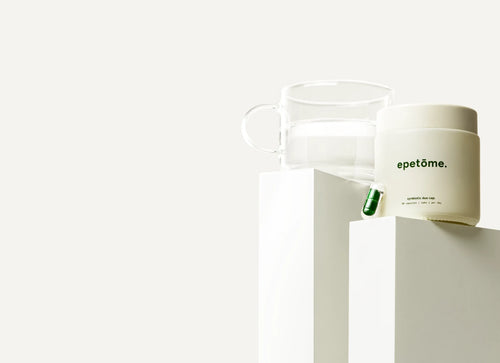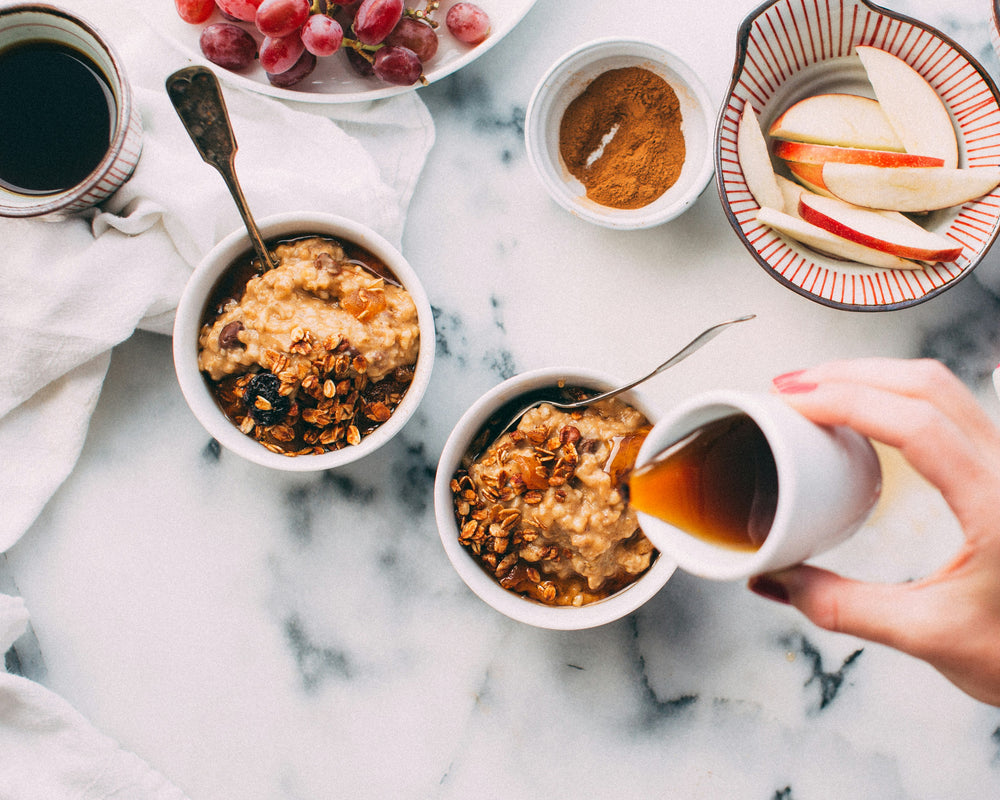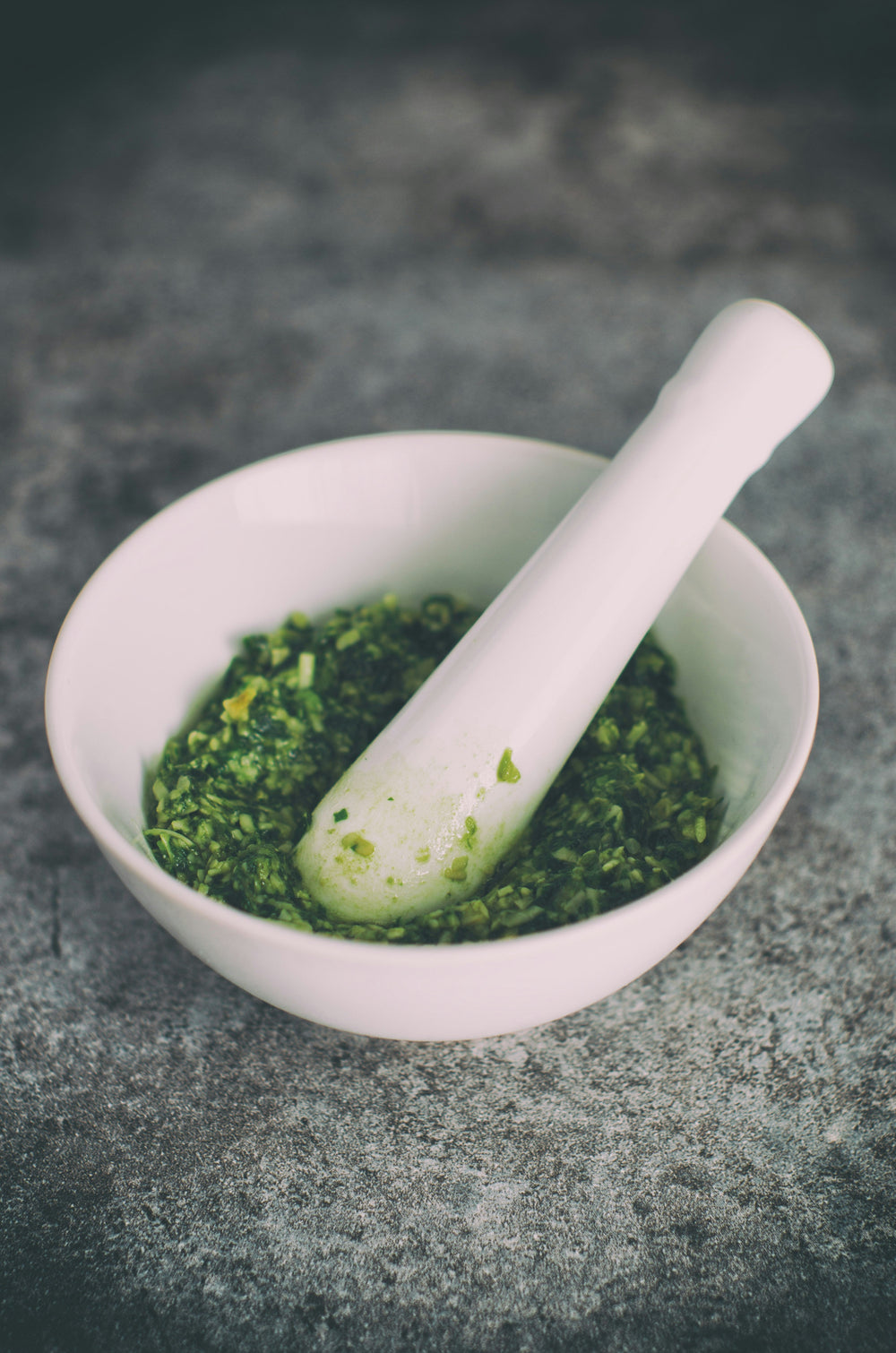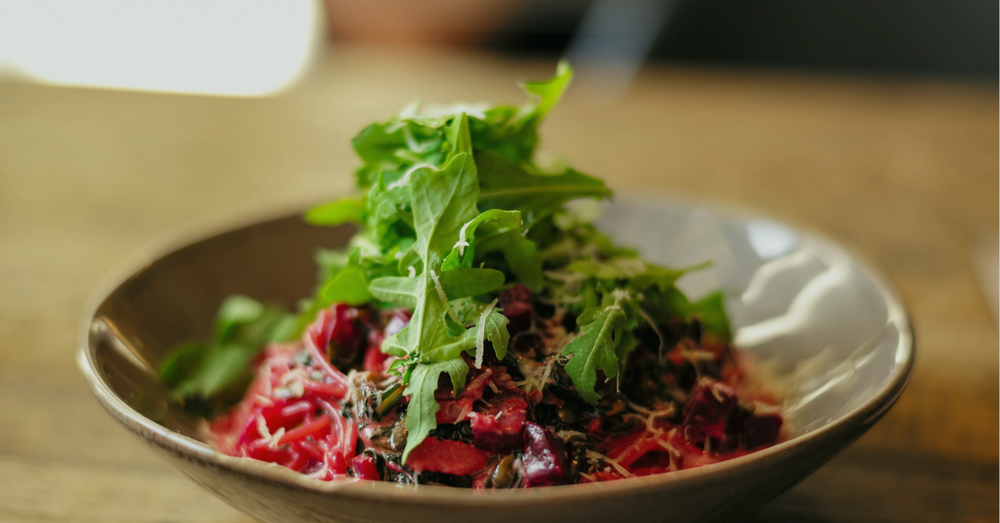4 reasons to start drinking more water for your gut.
4 Reasons to Start Drinking More Water for Your Gut Staying hydrated isn’t just important in the summer — it’s something we should be more mindful of as it's essential for your digestive system, too. Despite its primary role in human health, water is often considered the forgotten nutrient. We frequently discuss what foods are best for gut health, but we rarely consider the impact of hydration in keeping our digestive systems functioning at their best. 4 Ways Your Gut Needs Water Water plays an integral role in nearly every aspect of the digestive process, from food breakdown and enzyme function to supporting the gut lining. Here are four ways water helps maintain a healthy gut: Digestion and Nutrient Absorption Water is key to breaking down food and ensuring that nutrients are properly absorbed. Without adequate hydration, your body cannot efficiently extract the vitamins, minerals, and other nutrients it needs from food. This leads to suboptimal nutrient absorption and may cause deficiencies in vital nutrients like water-soluble vitamins (e.g., B vitamins, vitamin C) and minerals. Maintaining Gut Motility A hydrated gut ensures regular bowel movements by keeping stool soft and easy to pass. When you're dehydrated, the intestines absorb too much water from the food waste passing through, leading to hard, dry stools and constipation. Studies show that even mild dehydration (around 3% of body weight lost) can significantly slow gastric emptying, making food stay in the stomach longer, which can cause bloating, nausea, and discomfort. Microbiome Balance Water helps maintain a healthy gut microbiome, the community of beneficial bacteria that play a crucial role in digestion and immune function. Dehydration can disrupt this balance, potentially encouraging the growth of harmful bacteria and reducing the diversity of gut microbes. Studies have shown that low water intake can lead to higher levels of Campylobacter,...

4 Reasons to Start Drinking More Water for Your Gut
Staying hydrated isn’t just important in the summer — it’s something we should be more mindful of as it's essential for your digestive system, too. Despite its primary role in human health, water is often considered the forgotten nutrient. We frequently discuss what foods are best for gut health, but we rarely consider the impact of hydration in keeping our digestive systems functioning at their best.
4 Ways Your Gut Needs Water
Water plays an integral role in nearly every aspect of the digestive process, from food breakdown and enzyme function to supporting the gut lining. Here are four ways water helps maintain a healthy gut:
-
Digestion and Nutrient Absorption
Water is key to breaking down food and ensuring that nutrients are properly absorbed. Without adequate hydration, your body cannot efficiently extract the vitamins, minerals, and other nutrients it needs from food. This leads to suboptimal nutrient absorption and may cause deficiencies in vital nutrients like water-soluble vitamins (e.g., B vitamins, vitamin C) and minerals. -
Maintaining Gut Motility
A hydrated gut ensures regular bowel movements by keeping stool soft and easy to pass. When you're dehydrated, the intestines absorb too much water from the food waste passing through, leading to hard, dry stools and constipation. Studies show that even mild dehydration (around 3% of body weight lost) can significantly slow gastric emptying, making food stay in the stomach longer, which can cause bloating, nausea, and discomfort. -
Microbiome Balance
Water helps maintain a healthy gut microbiome, the community of beneficial bacteria that play a crucial role in digestion and immune function. Dehydration can disrupt this balance, potentially encouraging the growth of harmful bacteria and reducing the diversity of gut microbes. Studies have shown that low water intake can lead to higher levels of Campylobacter, a bacterium linked to digestive discomfort, and lower overall microbial diversity, both of which can negatively impact digestive health. -
Reducing Inflammation
Chronic dehydration can increase inflammation in the gut, which is often linked to conditions like irritable bowel syndrome (IBS), inflammatory bowel disease (IBD), and even "leaky gut" syndrome. When we’re dehydrated, blood gets shifted from muscles and the gut to the vital organs, especially the brain and the heart. This shift affects the gastrointestinal tract, leading to symptoms like stomach pain, cramping, and even slowed digestion and nutrient absorption.
Also, water in the body is vital for many important processes beyond just digestion. It helps transport essential glucose, oxygen, and nutrients to cells, and aids in removing waste products through the kidneys. Water also lubricates joints and eyes, supports skin health, and ensures the digestive system functions properly. Adequate hydration is crucial for these processes to occur efficiently, contributing to overall well-being.
Additionally, water is key to regulating body temperature. Particularly in hot conditions, your body loses more water through perspiration, which helps cool the body and maintain a stable temperature. As the body loses water through sweat, it's important to replace it to avoid dehydration. Those living in warmer climates or engaging in physical activities that cause significant fluid loss need to drink more fluids regularly to replace what is lost through sweat.
Is All Water the Same?
Not exactly. The source of your drinking water may impact your gut microbiota in different ways. It’s believed that the microbial community in water can influence your gut's microbiome. For example, natural mineral water is often untreated and may carry a more diverse microbial load. On the other hand, tap water is usually disinfected, which results in a less diverse, more uniform microbial profile.
While more research is needed to fully understand the implications of these differences, the type of water you drink might influence your gut health in subtle but important ways.
Simple Tips to Stay Hydrated
UK guidelines recommend about 6-8 glasses of water a day for adults. Here are a few tips to help increase your water intake throughout the day:
-
Carry a reusable water bottle and keep it within sight.
-
Set reminders on your phone to drink water regularly.
-
Infuse water with herbs (like mint and basil) or fruits (like strawberries, blueberries, lemon or cucumber) for added flavour.
-
Eat water-rich foods such as watermelon, cucumbers, and citrus fruits.
-
Start your day with a glass of water, especially before taking any supplements or probiotics.
The Bottom Line
Water is crucial for maintaining gut health and microbial balance. From supporting digestion to improving nutrient absorption and keeping inflammation in check, proper hydration is a foundational aspect of digestive well-being. As we enter the warmer months, prioritising hydration is one of the easiest ways to support both your gut and your overall health.
References
Moghaddam, H. S., Abkar, L., & Fowler, S. J. (2024). Making waves: From tap to gut—exploring the impact of drinking water on gut microbiota. Water Research, 2024, 122503. https://doi.org/10.1016/j.watres.2024.122503
Sato, K., Hara-Chikuma, M., Yasui, M., Inoue, J., & Kim, Y.-G. (2024). Sufficient water intake maintains the gut microbiota and immune homeostasis and promotes pathogen elimination. Journal of Clinical Gastroenterology, 27(6), 109903. https://doi.org/10.1016/j.jcg.2024.06.003
Vanhaecke, T., Bretin, O., Poirel, M., & Tap, J. (2021). Drinking water source and intake are associated with distinct gut microbiota signatures in US and UK populations. The Journal of Nutrition, 152(1), 171–182. https://doi.org/10.1093/jn/nxab312
This spiced apple and pumpkin seed porridge is a warming, high-fibre breakfast that’s perfect for cosy mornings. Made with creamy oats, gently caramelised apples and a crunchy pumpkin seed topping, it’s ready in just 15 minutes and serves one.
These prep-ahead oven-baked oats with blueberries and bananas are rich in protein and fibre, making them a nourishing, gut-friendly breakfast to enjoy all week.
These spicy green eggs with feta are a quick, protein-rich recipe packed with gut-friendly ingredients like spinach, courgette, and spring onion. Baked in the oven or air fryer, they’re simple to make, full of flavour, and support digestion with a balance of fibre, protein, and healthy fats. Perfect for breakfast, brunch, or a light meal, this vibrant dish proves that nourishing your gut can be both delicious and easy.
Bright, fresh, and ready in just 10 minutes, this flavour-packed wrap serves one and is ideal for breakfast, lunch, or any time you’re after something simple yet filling.
Start your day with a gut-friendly twist on a classic dessert. The peach cobbler overnight oats serve 2–3 and takes just 10 minutes to prepare the night before. Packed with fibre, flavour and feel-good ingredients, it’s the perfect make-ahead option for busy mornings or a nourishing snack you can enjoy any time of day.
This smoky harissa egg bagel is the perfect 15-minute meal. Made with creamy Greek yoghurt, tangy pickles, and a hint of spice, it’s a high-protein twist on classic egg salad that delivers on both taste and texture. Ideal for busy days, this easy bagel recipe makes lunch feel gourmet without the effort.
Soft, satisfying, and subtly sweet—these breakfast cookies are made to fuel your morning the right way. With fibre-rich oats, plant-based protein, and antioxidant-packed matcha, they’re a gut-friendly grab-and-go option that doesn’t compromise on flavour or function.
Emily's light, gut-friendly crêpes are the perfect balance of fibre, protein, and healthy fats to support digestion and keep you feeling great.
Start your day with a delicious and nutritious breakfast option - Carrot Cake Oats. Filled with fibre diversity to promote healthy digestion.




































